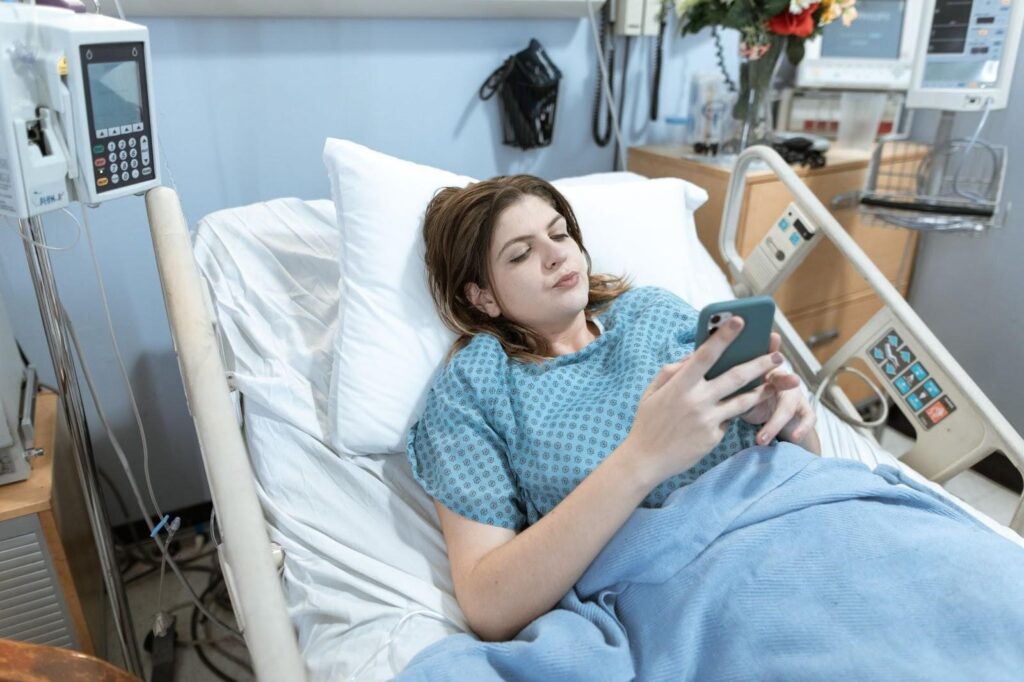For somebody who is currently suffering from a disability, day-to-day life tasks get pretty exhausting. This makes everything seem quite overwhelming and navigating the Social Security Administration’s system, guidelines, and paperwork is not an easy task. So, it’s understandable if they wonder whether it’s even worth it to apply for Social Security Disability Insurance (SSDI).
So, is SSDI worth it? Well, it depends. There are a few things to think about. For example, if you have access to legal representation, the process goes far more smoothly. It also depends on your subjective cost-benefit analysis of whether it is worth it to fight for years to get approved for Social Security Disability Insurance.
Keep reading below as we provide more information about SSDI and all of the important aspects you should consider.
What is SSDI?
SSDI refers to the federal government’s disability benefits program. Those who have earned enough “work credits” are eligible for disability compensation. You can accumulate work credits by earning and paying Social Security taxes on a certain amount of income each year.
Only those who have paid into the Social Security Disability Insurance program will be eligible to receive payments. However, a disabled person may be eligible for these benefits based on the employment history of a spouse or parent.
Individuals who qualify for SSDI have their monthly benefit payments based on a percentage of their average income, up to predetermined upper limits. These benefits are available without regard to monetary need.
Is SSDI Worth It?
Many people question whether or not the strict criteria for disability and the associated expenses are worth it. Having private disability insurance might make the application process smoother and the payouts more generous.
However, not everyone is in a position to do so. Depending on how much money you were making before your impairment, your SSDI payouts could be much more or less.
Your SSDI benefits may be subject to taxation under certain conditions. However, the program lets you retain your eligibility as long as your income falls below federally mandated levels. Since SSDI will only replace about 60% of your pre-disability earnings, you may want to consider purchasing long-term disability insurance instead.
Although there are no monthly premiums associated with Social Security Disability Insurance (SSDI), the approval process can take years, especially if you do not have a Social Security Disability attorney representing you.
The value of this program and the extent to which spending years fighting for it is justified depends entirely on your specific circumstances and whether or not you have access to legal representation.
Eligibility for Social Security Disability Insurance
To be eligible for Social Security disability insurance, you must first be unable to work and then demonstrate that you are completely disabled. In addition, you’ll need to show that you’ve put in an honest effort toward getting treatment.
Your SSDI claim will be refused if you recover or transition to alternative work; therefore, it’s important to present documentation of your medical visits and prescriptions. Only 35% of claims were accepted in 2020.

The government will likely deny your application for SSDI payments if you are young, on the assumption that you will eventually get well.
Because of the total disability criterion, even if you have suffered a potentially disabling ailment that is as serious as a heart attack, your Social Security Disability Insurance claim could still be denied if you are unable to prove that it prevents you from functioning.
An appeal can be filed each time a Social Security Disability Insurance claim is denied. A disability judge will review your paperwork, listen to your testimony, and then provide a ruling on the Social Security Administration’s judgment.
The procedure may take a very long time and does not guarantee coverage.
It’s far less difficult to get approved for long-term disability insurance. You don’t need to be in perfect health, but you should be able to avoid becoming too much of a danger to the disability insurance provider.
Long-term disability insurance typically provides compensation regardless of whether or not the insured can work. That’s also the case with SSDI; however, if your income is too high, you won’t be eligible for payments. In addition, workers’ compensation may be preferable if the injury occurred at the place of employment.
It is official policy from the Social Security Administration that “no benefits are payable for partial disability or short-term disability.” The following is its rigorous definition of a disability:
You’ve been disabled for at least a year, and your condition makes it unlikely that you’ll ever be able to return to your previous line of work or engage in any gainful activity.
The Waiting Period for SSDI can be Lengthy
This is an additional key benefit of private disability insurance over a public one. The difference between SSDI and long-term disability insurance is that the latter can take a long time to kick in.
There is often a 90-day waiting period (sometimes called an elimination period) with long-term disability insurance, and it may be another 30 days after that before you receive your first benefit payment. However, if you apply for Social Security benefits, you won’t start receiving them for another six months.
Qualifying can take a considerable amount of time. When applying for Social Security disability benefits, many people find themselves initially rejected.
A hearing date must be scheduled, and a hearing before a disability judge must be attended to appeal the denial. Hearing dates can be months away and are no guarantee of a favorable decision for the applicant.
Are There Conditions That Automatically Qualify for SSDI?
To get disability payments, you must meet all of the requirements set forth by the Social Security Administration. The “Blue Book” from the Social Security Administration (SSA) outlines the conditions that will be immediately reviewed for deciding whether or not to provide disability payments.
To name a few:
- Musculoskeletal disorders (such as bone, joint, and skeletal spine injuries)
- Special senses and speech (such as visual disorders and blindness)
- Respiratory diseases (such as chronic bronchitis, emphysema, and asthma)
- Cardiovascular system diseases (such as chronic heart failure)
- Digestive system diseases (such as inflammatory bowel disease and liver dysfunction)
- Genitourinary disorders (such as diseases of the urine and genital organs)
- Hematological disorders (such as blood diseases and disorders of the blood-forming organs)
- Skin conditions (such as dermatitis, burns, and persistent skin infections)
- Endocrine problems (such as pituitary gland disorders, thyroid gland abnormalities)
- Congenital diseases that affect numerous bodily systems
- Brain and nervous system problems (such as epilepsy or a benign brain tumor)
- Mental illnesses (such as bipolar disorder, anxiety, and depression)
- Cancer (malignant neoplastic illness)
- Immune system disorders (such as HIV infection, lupus, and inflammatory arthritis)
All of these conditions are included in the Social Security Administration’s Listing of Impairments—Adult Listings (Part A).
The Social Security Administration has determined that these types of impairments significantly impact daily life and hence qualify as severe.

There are four levels of appeal available if your disability claim is denied, beginning with the local Social Security Administration office, and ending in federal court. However, the more times you are turned down for disability benefits, the longer it is going to take for you to get them.
The SSA’s listing of impairments is not a prerequisite for applying for Social Security Disability benefits.
You will need to provide the Social Security Administration with a documented diagnosis of your ailment demonstrating that you have a “medically determinable impairment” that keeps you from functioning at your full potential.
To qualify, your disease must be so severe that it prevents you from working or carrying out your regular daily responsibilities. The term “residual functional capacity” is used to describe this diminished capability.
The Social Security Administration may classify your disability as being equivalent to one of those on the list if it fulfills its criteria. The diagnosis your doctor gives you is the first step toward proving your ailment. This does not guarantee that you will be approved for benefits.
Is It Possible to Earn an Income While Receiving SSDI?
Even though you have made contributions to the Social Security system throughout your whole working life, this does not mean that you are exempt from adhering to the policies and regulations that have been established by the SSA.
The decision to work while collecting benefits is not without risk, and it can be difficult to keep track of both your earnings and your benefits if you lack the necessary knowledge and experience.
Social Security Disability Insurance payments are made to people who are totally disabled and hence unable to work or earn a substantial living.
Therefore, if your monthly income is less than the limit, you should still be eligible for SSDI payments. The maximum substantial gainful activity (SGA) amount is determined by the national average wage index each year and is modified accordingly each year.
Immediately notify Social Security if:
- You obtain or lose employment.
- There has been a shift in your working conditions, responsibilities, or compensation.
- You must now begin paying for expenditures associated with working because of your impairment.
You might need to pay for work-related expenses from your regular paycheck because of your impairment. Counseling, transportation, and the cost of any necessary specialized equipment are all potential expenditures.
If your expenses are major, you may be allowed to make more than the SGA limit and still receive benefits. It is imperative that you notify the Social Security Administration of any changes as soon as possible.
If you are on SSDI and you begin to earn more than SGA, you may have your benefits terminated. It might be challenging to learn all the rules and exceptions for those who have never dealt with these procedures before. If you’re worried, it’s a good idea to consult a lawyer specializing in Social Security Disability cases.
What is SSI?
Supplemental Security Income benefits are not earned benefits, and they are not limited to those who are disabled but may also be awarded to seniors over the age of 65 and the blind.
To qualify for Supplemental Security Income payments, you do not need to have a certain employment history, and the amount of these benefits is not based on your previous earnings.
To get Supplemental Security Income payments, your income and assets must fall below a particular threshold ($2,000 for individuals and $3,000 for couples).
Main Differences Between SSI and SSDI

As was previously established, SSI and SSDI have different requirements for eligibility.
You can qualify for Social Security Disability Insurance benefits based on your spouse’s, your parent’s, or your own. Only people with disabilities are eligible for this program.
You can only qualify for SSI if your household income is low, and you don’t have many assets. It makes no difference if you’ve worked before, and no work credits are required. You may be eligible for this program if you are blind, disabled, or over the age of 65.
If you are applying for either one based on your disability status, you have to satisfy the criteria for the status of “disabled.” This can include things like:
- In 2023, as long as you don’t make over $1,470 a month (or over $2,460 if you’re blind), you’re not doing substantial gainful activity.
- Having and showing the necessary signs of a disability listed in the “Blue Book” (Social Security’s listing of impairments that qualifies you for benefit) or having a medical condition of equivalent severity and impairment degree.
- Being unable to work due to a severe impairment that prevents you from performing any gainful activity.
- Experiencing a disability that has lasted, is expected to last twelve months, or will eventually result in your death
To apply for either SSI or SSDI, you’ll need to show proof of your condition through medical documentation.
SSI or SSDI: Which Pays More?
The SSDI payout is generally higher than the SSI payout.
SSDI provides much higher benefits than SSI for disabled individuals. There will be participants who can receive benefits from both systems. Additionally, some states provide minimal supplemental benefits on top of SSI.
To receive SSDI payments, a person must have worked enough in the past. The amount of their benefits will be established by the SSA based on how much they have contributed over the years. Consult a Social Security Disability attorney if you need assistance applying for SSI or SSDI benefits.
Conclusion
At the end of the day, the decision of whether or not to file for social security disability insurance is highly personal. But from an objective point of view, it mostly depends on your specific set of circumstances. In any case, it’s best to do as much research as possible beforehand.


